Warsaw Means Business (and Much More)
Editor-in-Chief Morten Lindholm sits down with Mateusz Czerwinski, President of the Board at Warsaw Tourism Organization.
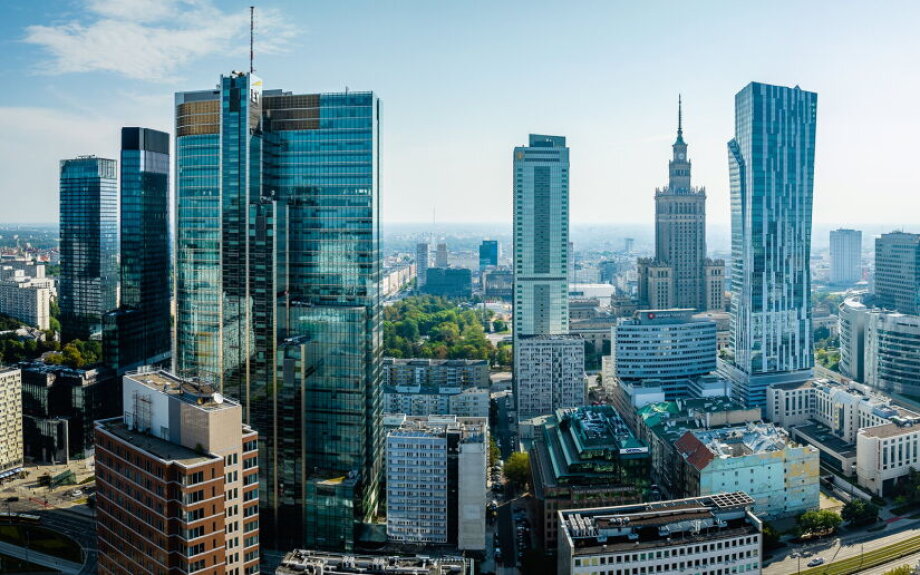
Editor-in-Chief Morten Lindholm sits down with Mateusz Czerwinski, President of the Board at Warsaw Tourism Organization.

WBJ: Once overlooked, Warsaw has rapidly transformed into a modern, livable, and business-friendly capital – combining cultural depth, green spaces, and global connectivity with smart urban planning and sustainable tourism strategies.
Warsaw has changed a lot over the past three decades. Can you share some statistics that reflect the city's transformation into a modern cosmopolitan hub?
Mateusz Czerwinski: Warsaw has undergone a remarkable transformation, most visibly reflected in its rapidly evolving skyline. Office space in the city expanded from 5.4 million m², in 2017, to 6.33 million m², in 2024, making it Central Europe's leading business hub.
Residential development kept pace as well with 23,000 new apartments completed in 2023 – nearly five times more than Prague. The city's four-five kilometer radius layout, centered around the Palace of Culture, ensures walkability.
Public transport handles 70% of traffic, with affordable one-euro airport transfers. The cycling infrastructure now spans 825 km, with 47 km added in 2024, and is supported by five million annual bike rentals.
Warsaw’s cultural growth is reflected in its three Michelin-starred restaurants among 23 recognized establishments.
The city's compact size, combined with these developments, creates a vibrant yet manageable urban environment that often surprises visitors.
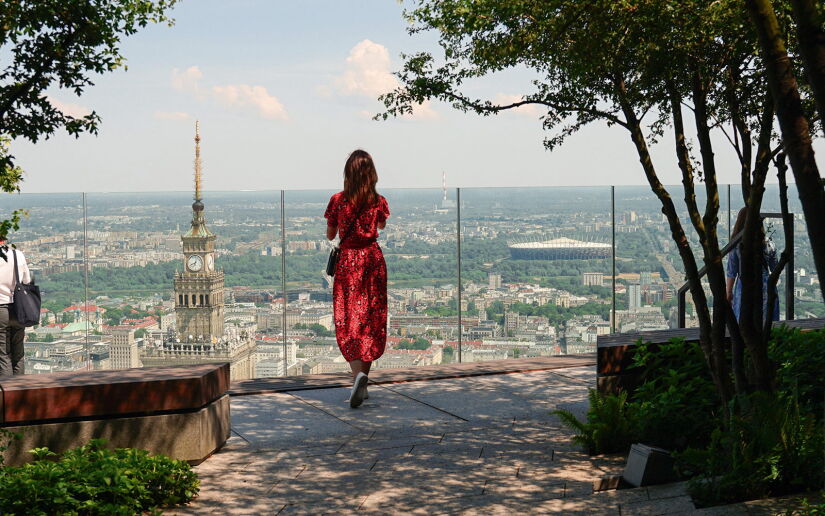
As tourism grows and the city’s offerings improve, what impact is this having on the way international investors and professionals perceive Warsaw?
The quality of life improvements, we’ve implemented in Warsaw, significantly boost the city’s appeal to international businesses.
Companies appreciate how the city's cleanliness, cultural offerings and leisure options help attract and retain talent.
While exact statistics aren't available, it is clear that the advantages of lower costs – especially compared to Western Europe – quality international schools for expat families, a generally tolerant attitude, vibrant dining opportunities and a wide scope of cultural scenes, make Warsaw very livable.
This combination makes Warsaw increasingly competitive for international talent, though some work remains to be done to overcome certain perceptions and fully capitalize on its potential as a global business destination.
Many cities are dealing with overtourism. How is Warsaw thinking about managing growth in a way that’s healthy for residents?
Warsaw proactively prevents overtourism by spreading visitors beyond the center to districts like Żoliborz, Mokotów and Praga. Unlike other overcrowded destinations, this layout preserves local lifestyles, with 80% of surveyed residents approving of how tourism is handled.
The key strategies we focus on in the city include promoting off-center accommodations, developing neighborhood attractions (flea markets, silent discos), and targeting high-value conference attendees over disruptive groups like stag parties. A fourth strategy is seasonal programing, which balances visitor numbers with winter light displays and year-round cultural events.
The city encourages tourism that engages communities without overwhelming them, protecting residents' quality of life through careful planning. Our approach differs from cities like Kraków or Venice where tourism dominates certain areas, demonstrating Warsaw's commitment to sustainable growth that benefits both visitors and locals through thoughtful urban policies and infrastructure investments.
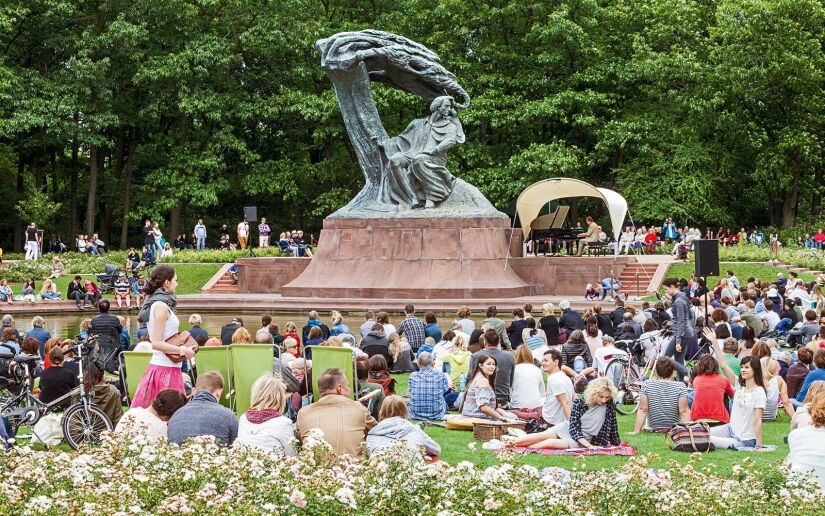
What in your opinion are the most important factors today in attracting international talent to a city – and how is Warsaw trying to meet those expectations?
The key factors attracting talent include Warsaw's strong business ecosystem (hosting multinational HQs and Europe's second-largest R&D network), quality international schools, and relatively affordable housing (20,000+ new units annually).
The city's cultural and culinary scenes cater primarily to locals rather than tourists, offering authenticity that expats appreciate. Excellent public transport and the city’s compact size ensure convenience, while abundant parks and an extensive network of bike paths enhance livability.
These elements combine to create an appealing package for skilled professionals, though challenges remain in increasing city’s brand awareness internationally and overcoming certain perceptions evoked by war in Ukraine. Warsaw's advantages – particularly its growing reputation as both a business hub and a livable city – position it well in the competition for international talent among Central European destinations
You’ve talked about encouraging visitors to explore more than just the city center. What are some places or experiences outside the typical tourist path that you think more people should discover?
Breakfast markets in Żoliborz, Mokotów and Wawer highlight the city’s community spirit through food, music and neighborhood gatherings. In summer, open-air cinemas and yoga sessions at venues like the Copernicus Science Centre bring people together in creative, laid-back settings. Repurposed historic forts such as Fort Mokotów and Fort 8 host everything from fashion shows to dining pop-ups.
Praga's alternative scene includes unique offerings like silent discos and theater, while the city's many parks and playgrounds (noted by expats as exceptionally plentiful) provide green escapes. These experiences demonstrate Warsaw as residents know it – clean, safe and green - a city of vibrant neighborhoods where tourism complements rather than dominates daily life. By venturing beyond the center, visitors gain deeper cultural connections and help distribute tourism's economic benefits more evenly across the city, supporting local businesses and communities while enjoying more authentic interactions.
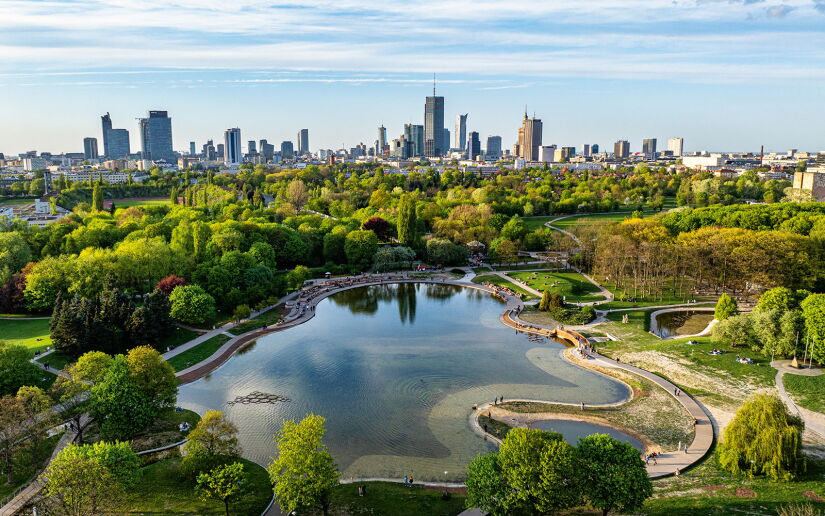
Warsaw hosts many international conferences and events. How do those gatherings affect the city beyond just the tourism numbers?
International conferences have a major economic impact – roughly two million euros per 1,000-person event – and support around 90,000 tourism-related jobs, accounting (for tourism in general) for 7.3% of Warsaw’s GDP.
More importantly, they facilitate valuable knowledge exchange – like Polish surgeons learning new techniques at medical conferences.
Warsaw actively competes for events, offering financial incentives that are crucial for attracting international associations. The business tourism sector also drives infrastructure development and elevates service standards, benefiting both visitors and residents through improved facilities.
Conferences leave tangible legacies, from research collaborations to new business ventures, demonstrating how strategic investment in tourism can yield broad socioeconomic benefits that go beyond short-term spending.
This approach has helped position Warsaw as a serious player in the global conference market, while also contributing to its evolution into a knowledge-based economy and strengthening its international profile.
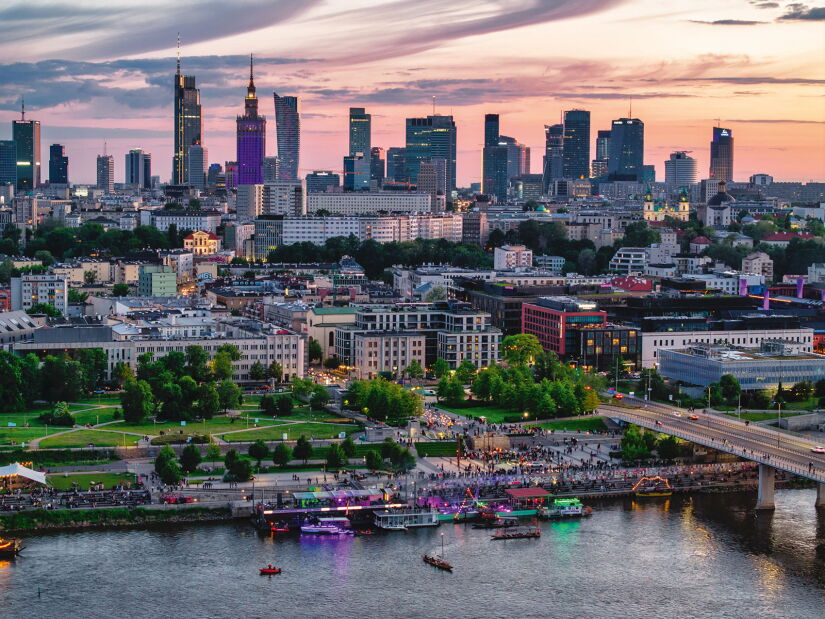
Looking ahead, what is your vision for Warsaw’s tourism sector over the next five to ten years, and what role will it play in shaping the city’s economic and real estate landscape?
Tourism will continue to grow – in 2024 we had almost 21 million tourists and visitors, a 32% increase year over year.
A long-planned, 10,000+ capacity, congress center remains crucial for attracting major international events and staying competitive on the global stage. A final decision about the investment is expected soon.
Meanwhile, the Wola district is emerging as a new city-business hub, featuring innovative meeting spaces, modern multi-functioning facilities and attractions like rooftop venues. This type of office and infrastructure growth is set to drive demand in the business tourism sector.
Key challenges include balancing quality of life amid rapid development. Tourism's impact on real estate will likely continue, with mixed-use developments – blending offices, hotels and amenities – becoming increasingly common as Warsaw solidifies its position as a regional hub for both business and leisure travel.
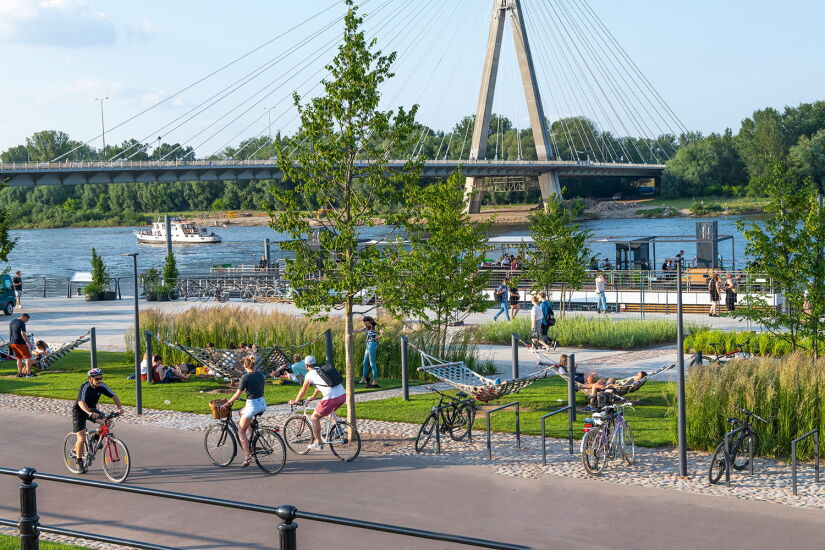
Every great city has something the world instantly connects it with – whether it's Paris and fashion, Rome and history, or Copenhagen and food. What do you think Warsaw could or should become globally known for?
Rather than a single iconic symbol, Warsaw's strength lies in its versatility. It’s an accessible, compact and affordable city-break destination that offers a rich blend of history, vibrant culture, diverse dining and lively nightlife.
Its remarkable postwar reconstruction, with its blend of architectural styles, tell a unique story of resilience. Its openness and diversity – especially visible in neighborhoods like Praga – make it welcoming, while excellent public transport connections add to its convenience.
Warsaw may never have one defining association like some cities, but its compelling mix of business dynamism, cultural richness and livability position it as one of Europe's most underrated capitals – a place where visitors discover unexpected depth and character beyond what they expected.
This multifaceted identity, combining historical significance with contemporary energy, is Warsaw's best opportunity to carve out a distinctive global reputation.
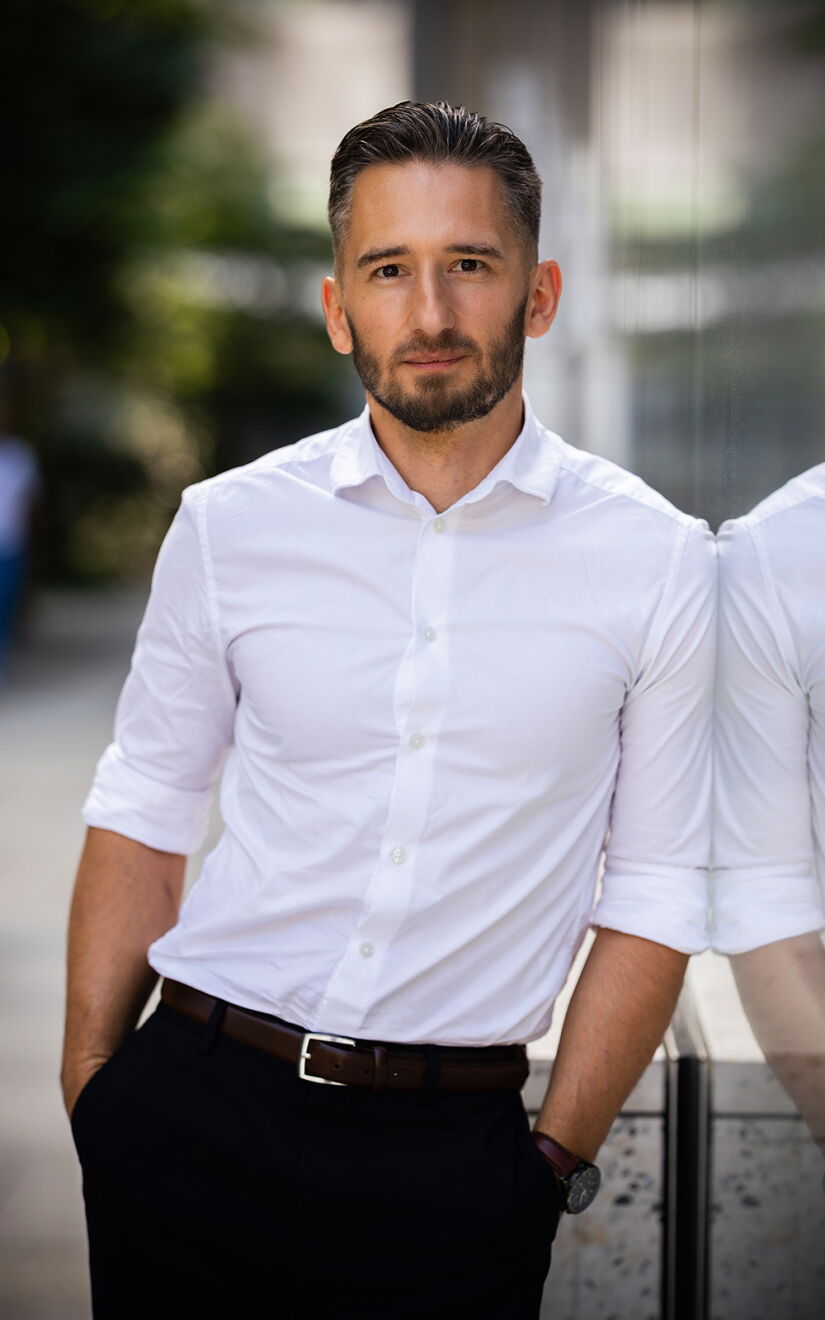
Mateusz Czerwinski, President of the Board at Warsaw Tourism Organization
He began his work in the meetings industry in 2008, working in MICE agencies organizing conferences and incentive events in Poland and abroad. He was one of the first in Poland to implement solutions of the BS 8901 sustainable meetings standard in events of various formats. Since 2010, he has been responsible for planning and implementing marketing activities of Warsaw as a meeting destination, contacts with foreign clients, supervision of local MICE market research and cooperation with the Warsaw scientific community at the Warsaw Convention Bureau. In 2015-2018, he was director of the Warsaw CvB department at the Warsaw Tourism Organization. From June 2018, he was the Vice President of Warsaw Tourism Organization, and in November 2024 he was appointed the President of the Board of the organization.